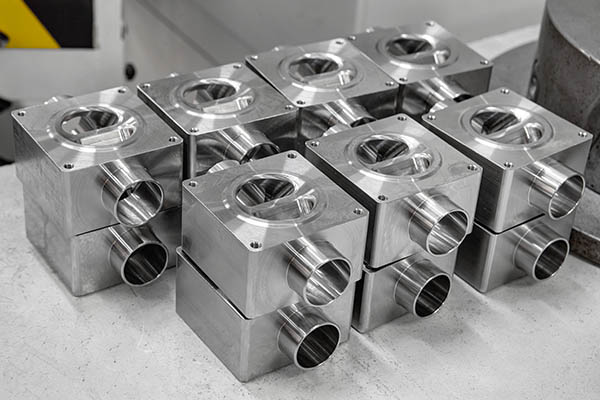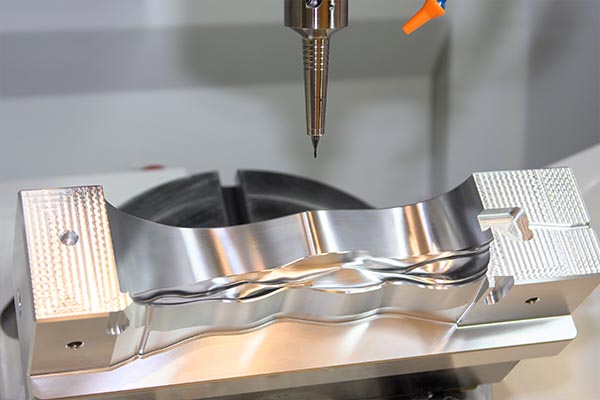CNC Machining Services: Precision and Innovation in Trendy Manufacturing
CNC Machining Services: Precision and Innovation in Trendy Manufacturing
Blog Article
CNC-machined machining is among the most revolutionary technologies used in contemporary manufacturing. It has fundamentally changed how manufacturing companies produce components and pieces that offer a degree of accuracy, precision, and versatility that is far superior to the traditional processes. CNC machining makes use of computerized controls as well as machinery to complete jobs like cutting, milling, drilling, and grinding on a variety of materials, from plastics and metals to composites and wood. Automating manufacturing processes, CNC machining eliminates many of the inefficiencies and inconsistencies caused by manual work. The result is a system which produces high-quality parts more quickly and in greater consistency encouraging innovation across industries such as aerospace and consumer electronics.
One of the most significant benefits of CNC machine is the ability to design highly detailed and intricate parts that would be almost impossible to make using conventional manufacturing processes. CNC machines work on digital designs, meaning that when a design is programmed in the machine, it's able to be produced accurately and in a consistent manner. This is particularly useful in fields like automotive, aerospace, and electronics, where precision is vital. Furthermore, CNC machining is capable of working with a broad range of different materials, ranging starting from soft plastics, to metals. This lets manufacturers make parts that are able to meet certain demands for strength, durability and heat resistance. The versatility of CNC cutting has provided opportunities for design as well as engineering.
Efficiency of CNC milling is an additional aspect in its broad adoption. Traditional machining methods require experts to manage the machine, alter settings, and change machines for each job. This process is not only labor-intensive, but it is also susceptible to human error. CNC machining on the side, however, allows for the automation of these jobs, enabling machines to operate continuously and with minimal supervision. Once the program is set and the machine has been supplied with the necessary material, it can perform multiple tasks without interruption, dramatically reducing production times. CNC machines also have the capability of operating 24/7, making the perfect machines for large-scale production runs. This level of efficiency enables manufacturers to meet tight deadlines, enhance their output as well as reduce the cost of labor in the process, while still maintaining top quality standards.
The other major benefit to CNC machining effectiveness is its speed. In automatizing the process of machining, manufacturers can significantly reduce the amount of time needed to make parts, which leads to quicker production times and cost savings. Since CNC machines are able to operate continuously, with little or no supervision from a human, they can increase output without sacrificing the quality. Automation also minimizes the risk of human error, ensuring that every component produced is to all specifications set out in the layout. Additionally, CNC machining allows for "lights-out" manufacturing, where machines continue to operate even after the workers leave which increases productivity while reducing labor costs. To find extra information please look at www.premiumparts.com/services/cnc-machining
Despite its many advantages, CNC processing isn't without its problems. One of the biggest hurdles that many businesses face, particularly small and medium-sized firms that is the initial cost that is required. CNC machines cost more than traditional tools for machining, in addition to the expense of software that is specialized, maintenance, and operator instruction to think about. The long-term advantages, such like lower costs for labor, faster production cycles, and better quality parts--usually justify the initial investment. In addition, the rise in CNC companies that offer machining services allows firms that don't have enough capital to put into their machines to make use of the latest technology. These companies can make customized parts upon request which is a cost-effective choice for firms that require high-quality machining without the upfront costs.
The ecological impact of CNC operations is an additional aspect that is worth thinking about. Although traditional methods of manufacturing typically result in a substantial amount of waste material, CNC machines are well-known for their high efficiency. Through precise cutting and shaping raw materials, CNC machining minimizes waste which reduces the material cost and environmental impact. Also, the automatic operation of CNC machines helps reduce energy use when compared with manual processes. Many modern CNC machines are built to be sustainable, making use of energy-efficient systems and motors to reduce the carbon footprint of their machines. This allows CNC processing an eco-friendly choice for companies looking to reduce waste and conserve resources.